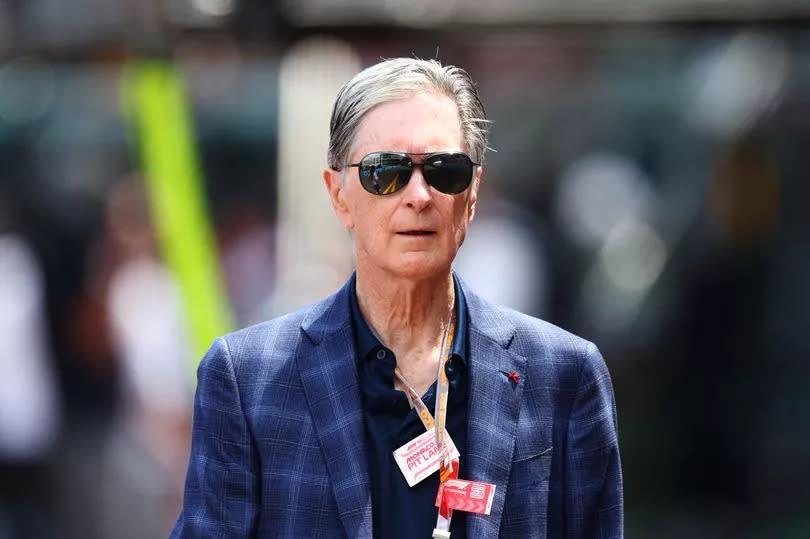John Henry has already outlined Liverpool stance on spending restrictions before critical vote

Liverpool owners Fenway Sports Group may move a step closer to seeing a financial control implemented in the Premier League in the coming seasons that they had been hoping for.
Premier League club chiefs will convene for a shareholders meeting in London later today (Monday, April 29) where one of the key issues on the agenda will be a vote in principle over a potential introduction of a salary cap, as first reported by The Times.
Financial controls in the Premier League have come under considerable scrutiny over the past 18 months or so, with Everton being hit with two breaches of the league’s profit and sustainability rules (PSR) for two separate financial periods, while Nottingham Forest and Leicester City have also been charged, with the former, like Everton, hit with a points deduction, although four points less than the eight the Toffees received.
Manchester City’s situation around their alleged 115 breaches of Premier League rules over a 10-year period is yet to be resolved, and with PSR rules to be replaced by a model similar to UEFA’s squad cost ratio rule from 2025, the new plans, which look at wages, amortisation, severance costs and intermediary fees as a percentage of operating revenue and player trading profit, have been criticised as not going far enough to address the competitive imbalance that exists in English football’s top tier.
READ MORE: Mohamed Salah chooses his words carefully - Liverpool’s new power structure has a major decision
READ MORE: Mohamed Salah anger doesn't reveal Liverpool truth as Jurgen Klopp plea misread
The proposed cap, which is to has been coined as “anchoring” would mean the top teams could spend only a certain proportion of the amount the league’s bottom club receives in broadcast revenue, money, potentially five times that sum, on transfers, wages and agents.
The Times reported last week that one of the clubs that would be opposed to the introduction of such a measure would be Manchester United, with the Old Trafford club claimed to be in opposition due to the potential of a hard salary cap putting them at a competitive disadvantage when compared to other major European leagues. Manchester City are also understood to be in opposition.
It is likely that Liverpool will be broadly supportive of the introduction of a spending cap, with the Reds operating in a more self-sustaining way than some of their ‘big six’ rivals, something which has created challenges when trying to continue to battle for silverware amid the climate of ever-inflating wages.
In an exclusive interview with the ECHO last year, John W. Henry, FSG chief and Liverpool’s principal owner, said: “There are ever-increasing financial challenges in the Premier League. The league itself is extraordinarily successful and is the greatest football competition in the world, but we’ve thought for some time there should be limits on spending so that the league doesn’t go the way of European leagues where one or two clubs annually have little competition.
“Excitement depends on competition and is the most important component of the Premier League.”
The Premier League draws in larger broadcast revenue that any other football league in the world, with the next cycle of domestic rights worth £6.7bn over four years, while international rights, currently just over £5bn a year, are expected to climb for the next cycle.
But while rights have climbed, and the money flowing to clubs has significantly increased, so, too, have wage costs, transfer fees, administrative costs, and inflation, which has made it harder to compete for all clubs within the confines of the current PSR rules, hence the challenges that have been presented to many clubs in recent times when it comes to remaining compliant. Even the likes of Arsenal and Manchester United had to keep some of their powder dry with one eye on the summer due to potential PSR concerns.
For Liverpool, the introduction of a salary cap would likely be seen as a positive move, one that affords them some of the financial security and certainty that they have been able to rely on with their North American sports interests.
Liverpool’s data-driven approach, which will next year likely be helmed by a new coach in Arne Slot, would likely benefit from the knowledge that wage bills would be tethered, while from an asset valuation perspective, having greater financial security through more rigid cost control could have a positive impact on the value of Liverpool as an asset moving forward, with spending restrictions, greater competitiveness, and a lack of promotion and relegation the chief reasons why North American sports franchises remain more valuable than Premier League teams despite not being as popular globally.

